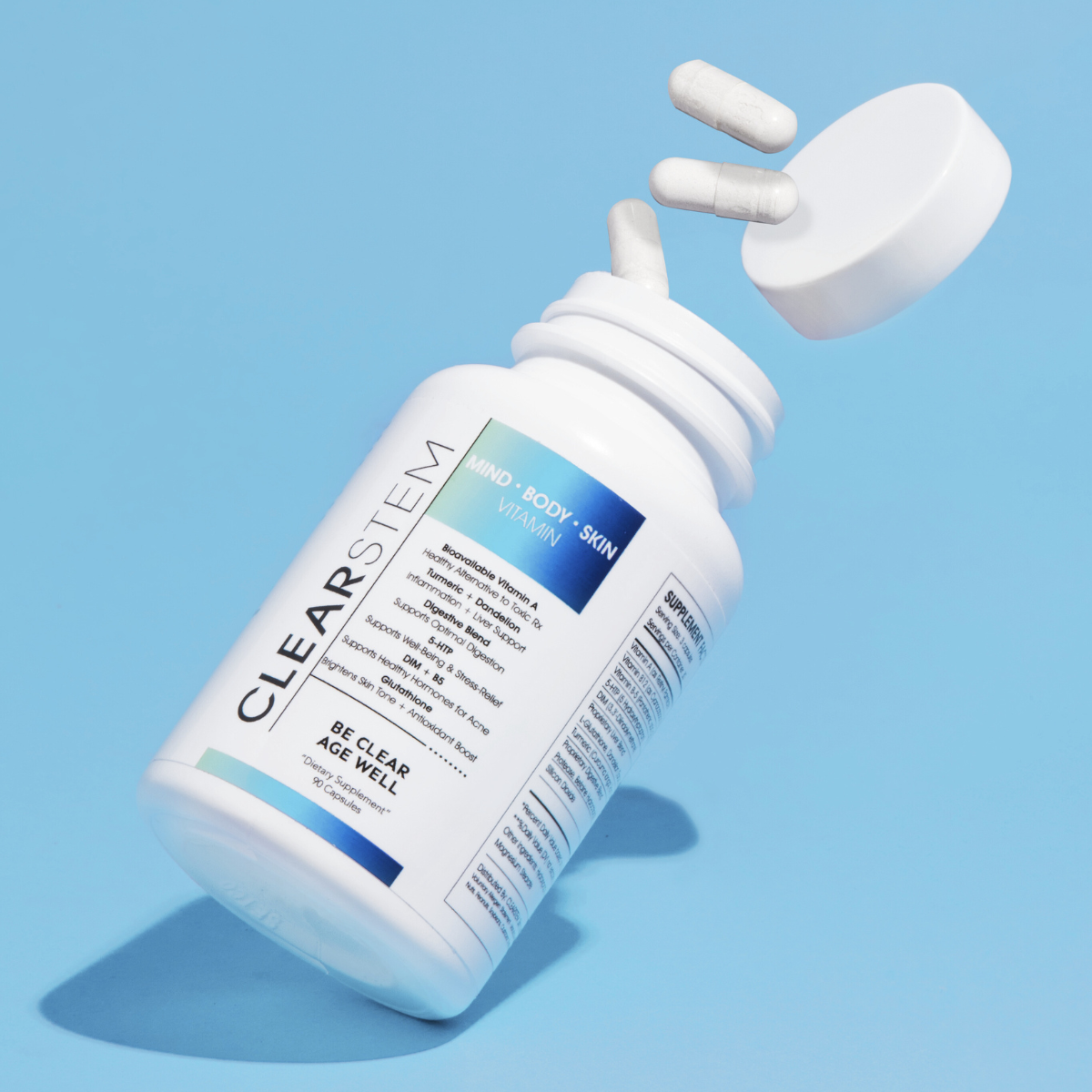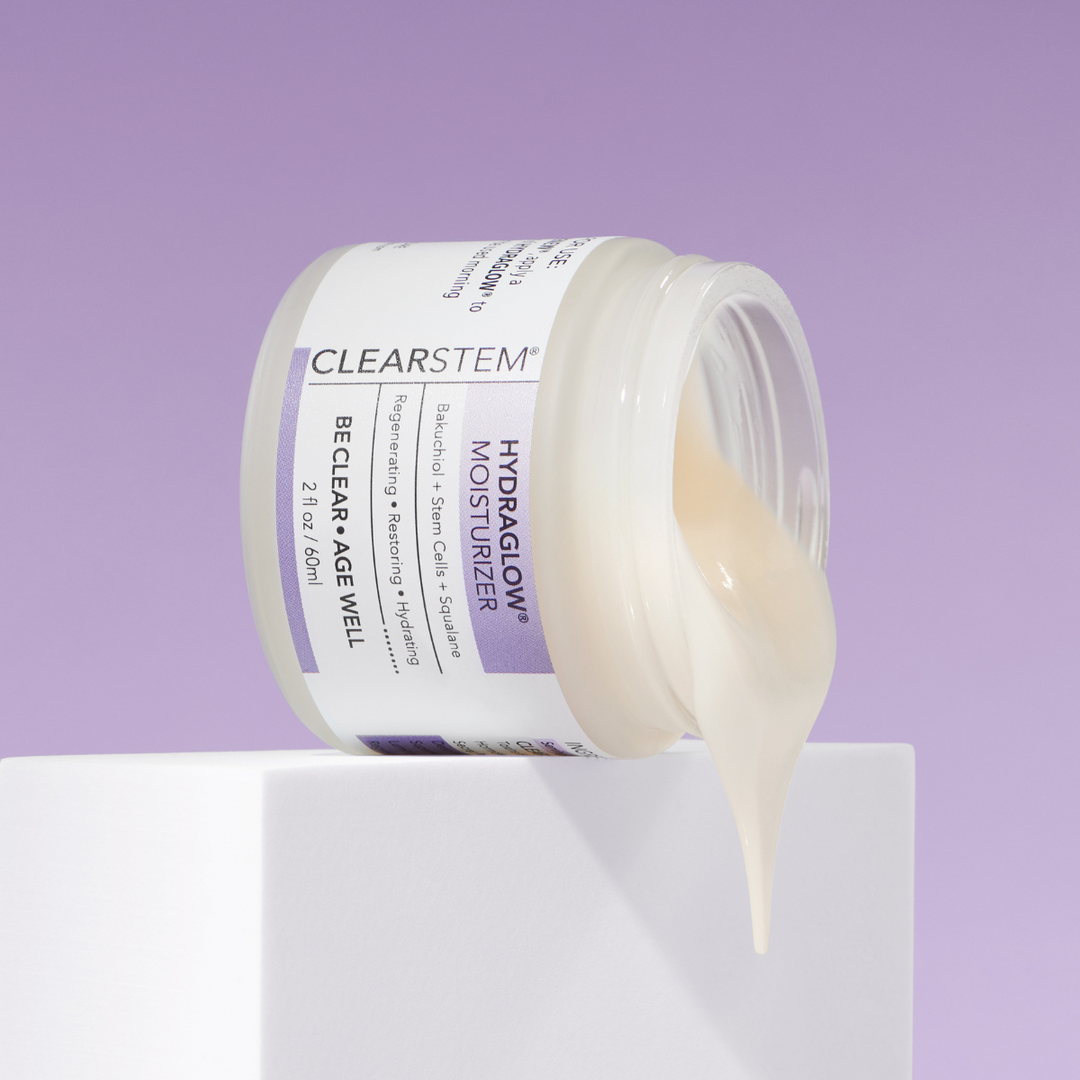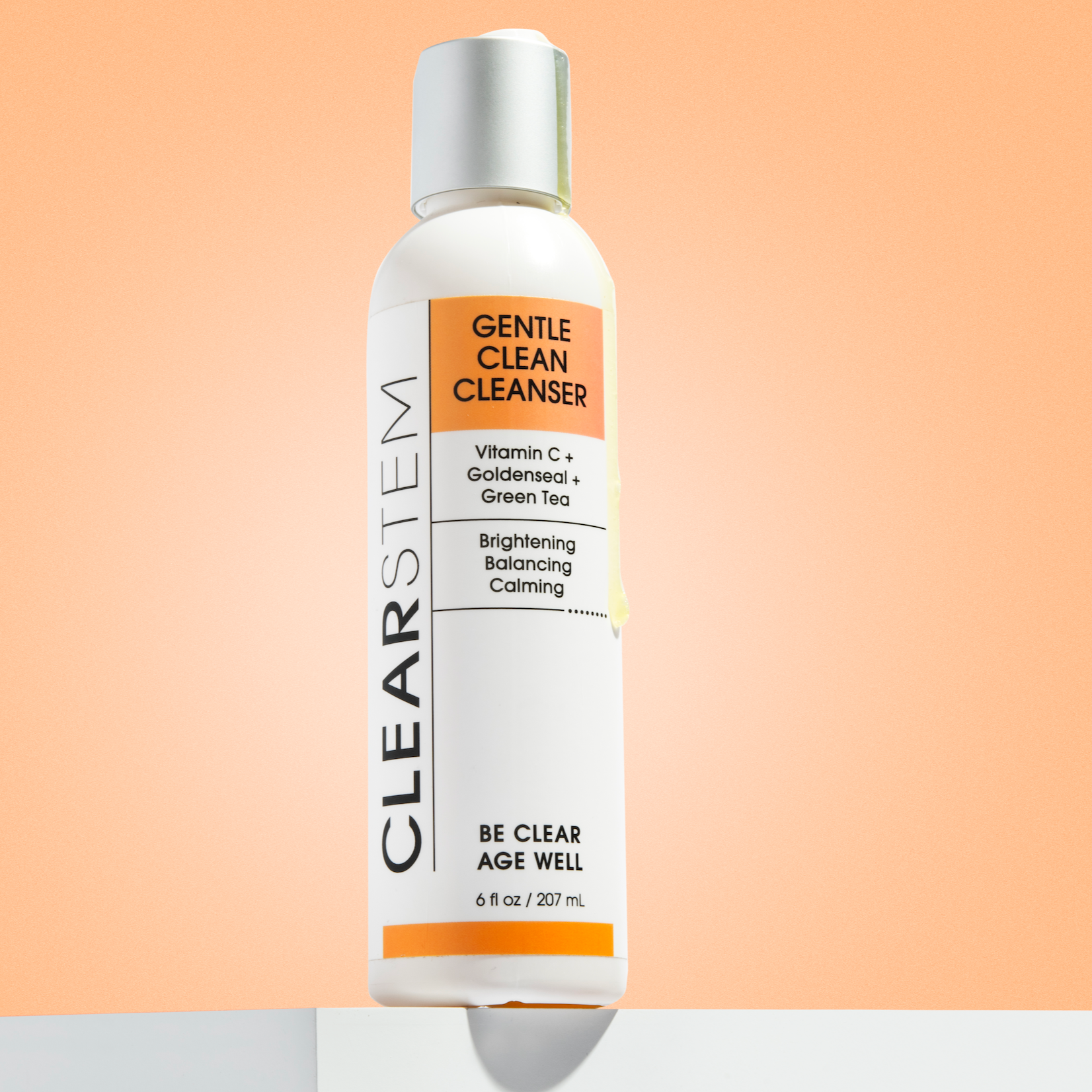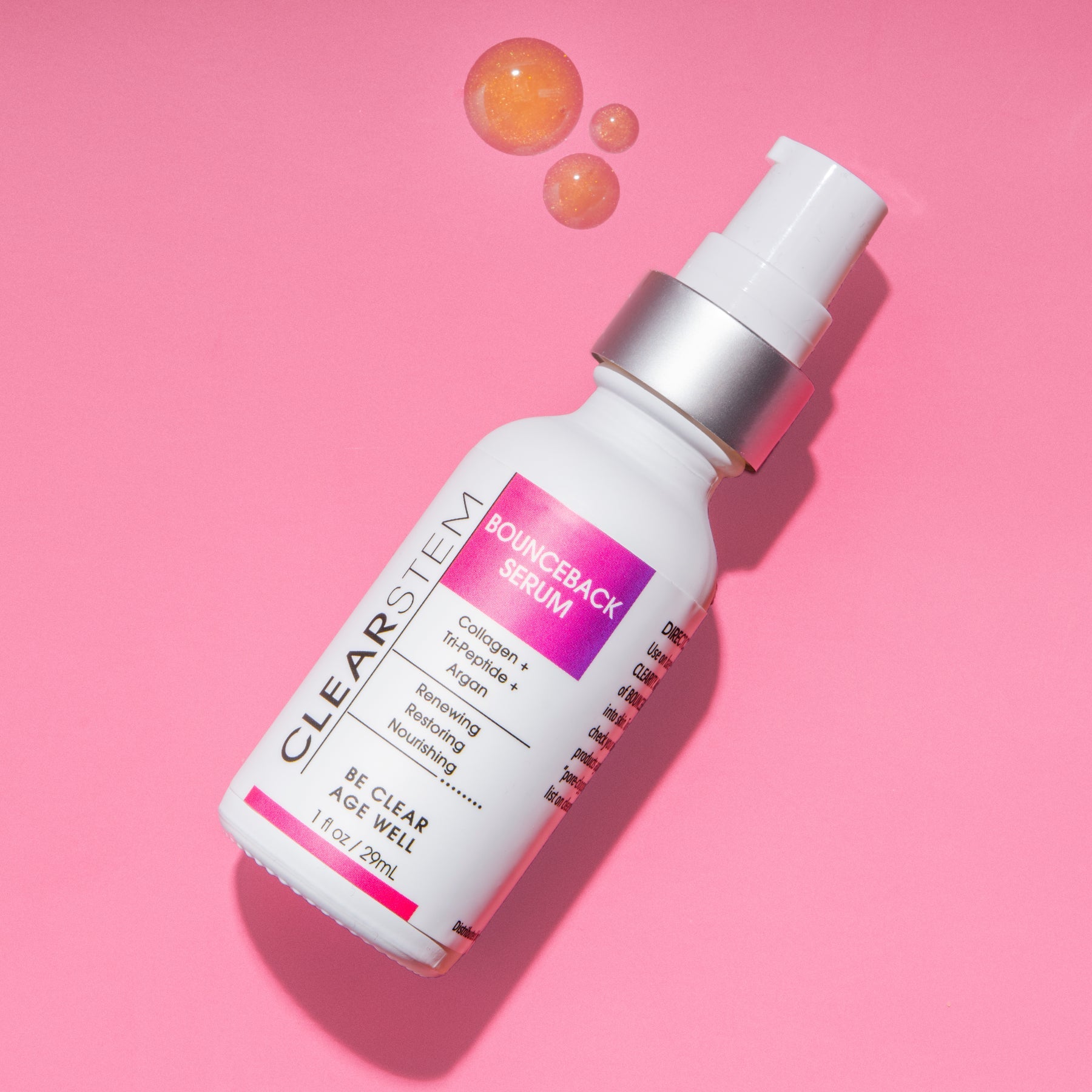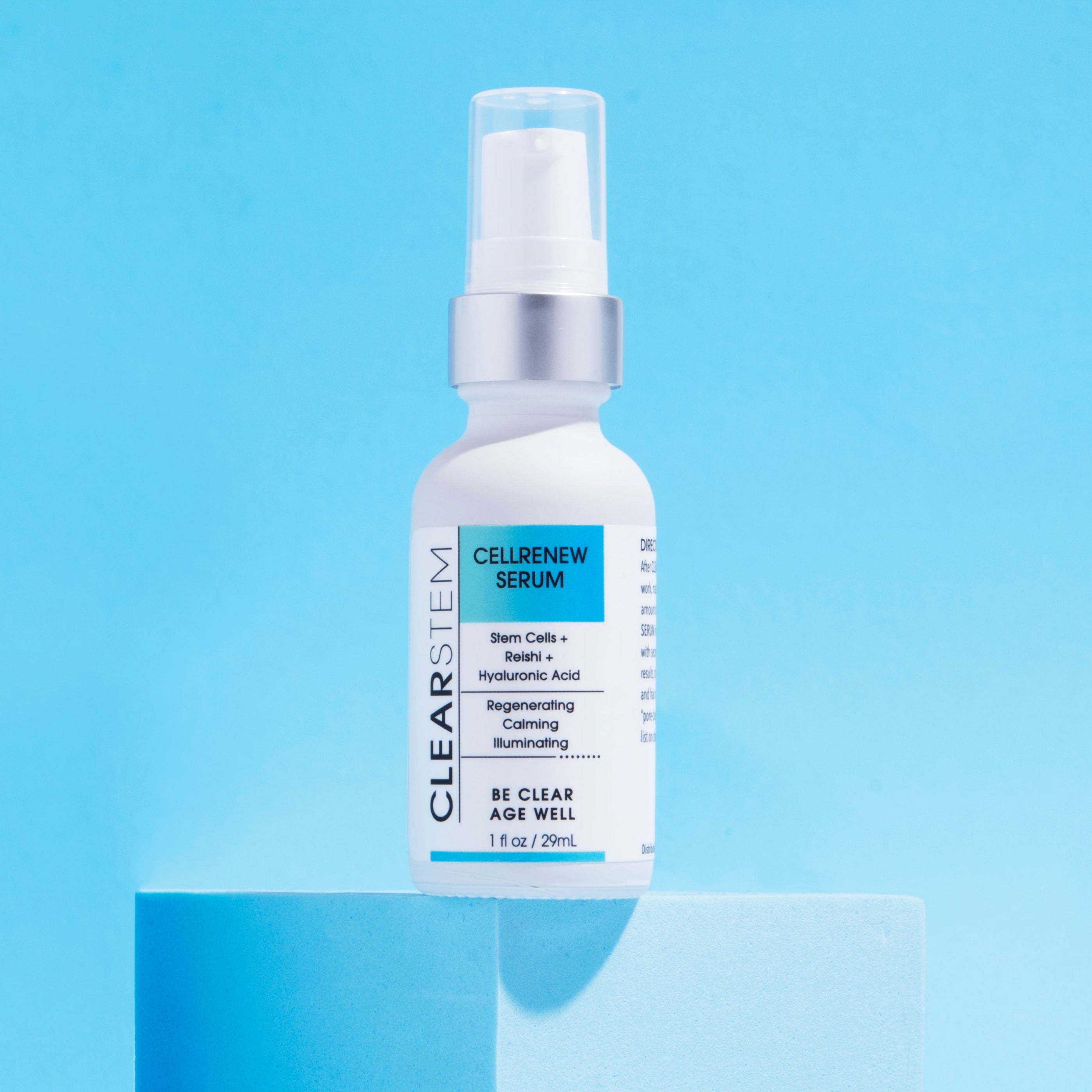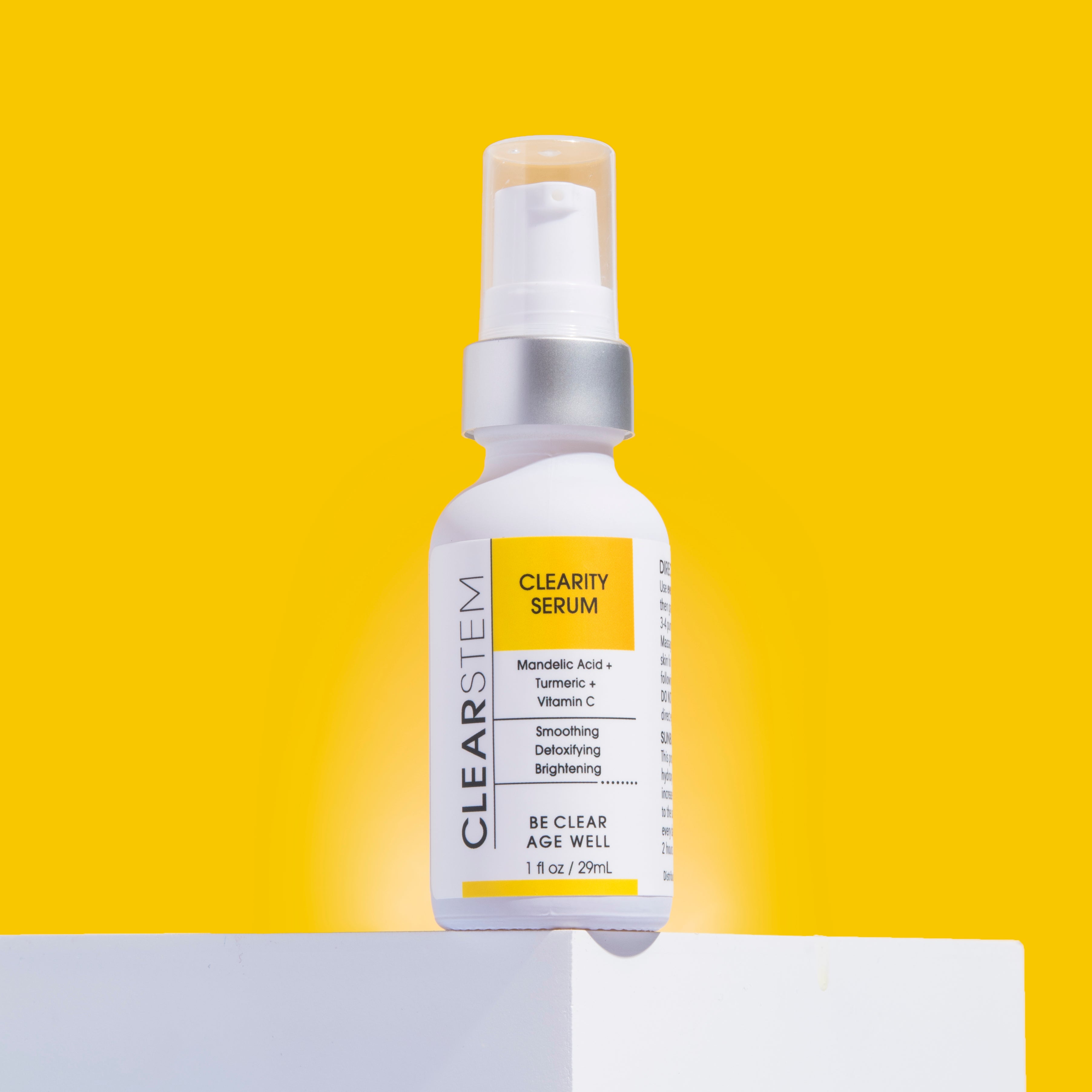Hormonal acne, cystic acne, blackheads, whiteheads, papules—there are almost as many types of acne as there are people dealing with it. Unfortunately, this also means there’s no one-size-fits-all solution. But there are some ways you can boost your overall skin health, making it stronger, healthier, and more resistant to inflammation and infections of all kinds. Probiotics are one such tool for building more resilient skin
So, just what are probiotics? And how do probiotics help with acne?
Probiotics are beneficial bacteria that help restore balance to your gut microbiome.1 There’s a powerful connection between gut health and skin health, and a little extra gut support might be just what your body needs to win the fight against acne-causing bacteria.
Probiotics and Acne: Exploring the Connection
Can probiotics help acne? Answering that question requires exploring the intricate connection between your gut, brain, and skin. Scientists are just beginning to uncover how incredibly complex our digestive system is and its impact on whole-body wellness, from brain health to immune function and everything in between.2
Why does digestive health have such far-reaching effects? For one thing, imbalances in the gut microbiome can trigger inflammation in tissues all over the body. Inflammation is linked to a range of conditions, including3:
- Type 2 diabetes
- Heart disease
- Arthritis
- Skin conditions like acne, rosacea, and eczema
There are other theories about the connection between the gut and skin health as well—for example, you may have noticed that stress can lead to acne flare-ups. This is often known as stress acne. Researchers now suspect that feelings of anxiety and depression can trigger acne by altering the gut microbiome, leading to skin inflammation.1
The Gut-Skin Axis: How Probiotics Influence Skin Health
Have you ever noticed that when your digestive system is working well, you feel good all over? Energetic, an extra bounce in your step, and maybe even a bit glowy? Well, it’s not your imagination.
Gut and skin health are far more closely tied than we previously understood. This phenomenon is known as the gut-skin axis. So if you’ve been asking, do probiotics help with acne? The answer is a resounding yes. The balance of good and bad bacteria in your digestive system (also known as the intestinal microbiota, or gut microbiome) plays a crucial role in the appearance and health of your skin.1
The number of good bacteria in your gut microbiome can be reduced by factors like diet, antibiotics, and disease. Taking a probiotic supplement can help restore balance by increasing the population of beneficial bacteria in your gut and helping reduce harmful bacteria that may be causing unwanted side effects. A 2019 review of the current research on the gut-skin axis found that probiotics can have a range of positive effects, including1:
- Strengthening the mucosal barrier of the intestines
- Supporting proper immune function
- Regulating inflammatory reactions in the gut and skin
- Inhibiting the growth of acne-causing bacteria
Types of Probiotics for Acne: Which Strains Are Beneficial?
Your body is home to thousands of strains of bacteria, both beneficial and harmful. These bacterial colonies live everywhere—our skin, mouths, and digestive systems.
When our systems are in balance, good bacteria outnumber the bad. When the balance is thrown off, you may notice digestive upset like gas, cramping, and so on due to a lack of healthy bacteria. Consuming probiotic foods or supplements can rebuild the numbers of good bacteria to get your digestion back on track and help fight harmful bacteria from taking over.
A probiotic supplement contains many of the same healthy bacteria that naturally live in the gut, including4:
- Lactobacillus species
- Bifidobacterium species
- Saccharomyces boulardii
- Enterococcus faecium
- Streptococcus thermophilus
Clearly, probiotics support skin health from within. But can probiotics help with an acne breakout when applied externally? The answer is yes—research has shown that probiotic skincare, like lotions and creams, can be effective. For example, lactobacillus and bifidobacterium creams have been shown to inhibit acne bacteria and strengthen the skin barrier. Streptococcus thermophilus can help build ceramides (substances that hold in moisture) and fight harmful microbes.1
Probiotic Foods vs. Supplements
Did you know you can also heal your gut with food? It’s true! You can find probiotics in both foods and supplements, so you may be wondering if one source is better than the other. Either one can work, but here are a few tips to keep in mind when you choose which is best for you4:
- Incorporating enough probiotic-rich foods into your diet to make a difference can be challenging.
- Supplements may be more effective at delivering probiotics to your gut without bacteria being destroyed by the digestive process.
- Heat preparation can kill live gut bacteria, so foods like miso or tempeh will contain fewer active cultures after cooking.
Incorporating Probiotics into Your Skincare Routine
Probiotics aren’t just for your diet—they can also be incorporated directly into your skincare routine. How do probiotics clear skin? As we mentioned above, topical probiotics can help clear up skin in several ways, including1,5:
- Fighting Cutibacterium acnes, one of the most common acne-causing gut bacteria
- Repairing the skin barrier
- Increasing ceramide production
- Increasing antimicrobial peptides
- Calming inflammation
- Reducing pustules and papules
While consuming probiotics through food or supplements can be an excellent way to support overall health, you may want to add a topical product to see faster results.
You can find probiotics in many products, including masks, face cleansers, non-comedogenic facial moisturizers, and more. Studies haven’t found any adverse effects from using topical probiotics, so don’t be afraid to experiment to find the right fit for your skin needs.5
CLEARSTEM: For Healthy Skin That Starts Within
Now more than ever, we know that whole-body wellness starts with the gut. You can support your body’s own acne-fighting powers with nutritious, probiotic-rich foods and supplements that help strengthen the skin barrier and keep acne-causing bacteria at bay. If you begin to notice vitamin deficiency symptoms in your skin and want to support your gut health, you may want to consider adding either topical or oral probiotics to support your acne treatment.
For truly healthy, resilient skin that can fight off an acne breakout before it starts, support your body from the inside out with CLEARSTEM. At CLEARSTEM, our goal is to bring you effective acne- and age-fighting products you can trust to be completely free of hormone disruptors, irritants, and toxic ingredients. Powerful ingredients, gentle skincare: That’s the CLEARSTEM promise.
Sources:
- Journal of Clinical Medicine. Potential role of the microbiome in acne: A Comprehensive review. https://www.ncbi.nlm.nih.gov/pmc/articles/PMC6678709/
- Integrative Medicine. The gut-brain axis: influence of microbiota on mood and mental health. https://www.ncbi.nlm.nih.gov/pmc/articles/PMC6469458/
- International Journal of Environmental Research and Public Health. The gut microbiota and inflammation: An overview. https://www.ncbi.nlm.nih.gov/pmc/articles/PMC7589951/
- Harvard Health Publishing. The benefits of probiotic bacteria. https://www.health.harvard.edu/staying-healthy/the-benefits-of-probiotics
- Pharmaceutics. Topical probiotics: More than a skin deep. https://www.ncbi.nlm.nih.gov/pmc/articles/PMC8955881/

